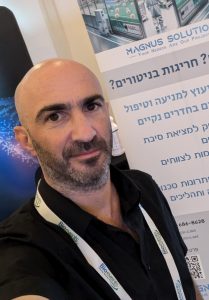Beyond Generic AI: How Domain Expertise Creates Breakthrough Tools for Pharmaceutical Operations
From Environmental Monitoring to Documentation Intelligence
A biologics manufacturer was preparing for a critical FDA pre-approval inspection. Their regulatory team faced months of manual document review to identify potential compliance gaps across thousands of SOPs, validation reports, and quality records. Instead, they deployed an SME-guided AI system that analyzed their entire quality management system in just two days, identifying 23 potential gaps with surgical precision. But the AI didn’t stop there—it suggested specific corrections for each gap, automatically rewrote non-compliant sections of documents, and analyzed recent FDA warning letters and 483 observations to help the compliance team prepare for likely inspection focus areas. This comprehensive regulatory intelligence, combining human expertise with AI capabilities, transformed months of manual work into days of strategic preparation.
The SME-AI Partnership: Beyond What Either Could Achieve Alone
In pharmaceutical manufacturing, the transformational opportunity lies in subject matter experts (SMEs) working with AI to create specialized tools that leverage both human expertise and machine capabilities. While generic AI tools offer broad functionality, they lack the nuanced understanding of pharmaceutical operations needed to distinguish meaningful patterns from statistical noise.
The breakthrough comes when pharmaceutical SMEs harness AI’s computational power to amplify their domain knowledge. Human experts understand what correlations matter pharmaceutically and why, while AI provides the analytical capability to process massive datasets and identify patterns that would require immense human time and effort to detect manually.
The Environmental Monitoring Revolution: Real-World SME-AI Collaboration
Environmental monitoring in pharmaceutical facilities generates enormous data volumes—thousands of daily measurements across temperature, humidity, pressure, particle counts, and microbial parameters. While SMEs understand these parameters’ pharmaceutical significance, manually analyzing vast datasets for complex correlations would be practically impossible.
Consider our environmental monitoring data analysis software, developed through SME-AI collaboration. Environmental monitoring experts intimately understand the pain points of their field—the countless hours spent manually entering EM data into spreadsheets, the weeks required to analyze trends across multiple parameters, and the tedious process of writing comprehensive reports that often delay critical decision-making. This firsthand knowledge of time-intensive, repetitive tasks became the driving force to create a tool that goes beyond traditional analysis.
The SME-designed system doesn’t just analyze large amounts of data and find correlations—it’s specifically engineered to eliminate the inefficiencies that SMEs know consume enormous time and resources. Environmental monitoring experts provide the pharmaceutical framework, understanding that contamination events result from complex interactions between multiple parameters, personnel activities, and equipment operations. They know which parameter combinations indicate real contamination risks and what thresholds require immediate investigation. But equally important, they understand which routine tasks can be automated to save time and money while improving accuracy.
AI amplifies this expertise by continuously analyzing datasets across multiple facilities, processing in minutes what would take human experts weeks to analyze comprehensively. The system simultaneously tracks hundreds of parameter relationships, identifying correlations that SMEs know are pharmaceutically significant but would require enormous manual effort to detect.
For instance, the system detected a subtle correlation between specific humidity fluctuations and increased particle counts in a filling suite. The SMEs provided the crucial pharmaceutical context—understanding that elevated humidity creates favorable conditions for microorganisms such as mold and fungi to thrive, leading to increased microbial contamination risks that threaten product sterility. AI provided the computational power to identify this specific correlation among thousands of potential relationships across months of historical data.
This represents true operational intelligence: human experts provide pharmaceutical understanding of why patterns matter, while AI provides the computational capability to find these patterns in complex, multi-dimensional datasets that would overwhelm human analytical capacity.
Transforming Operations Across Multiple Domains
Regulatory Compliance: SME-guided AI systems can process thousands of regulatory documents in days versus months of manual review. The biologics manufacturer mentioned earlier implemented such a system where regulatory experts defined the analytical framework while AI provided the processing power, achieving higher accuracy than traditional consultant engagements.
SOP Development: Quality SMEs provide pharmaceutical frameworks while AI rapidly generates comprehensive procedure drafts with consistent terminology and regulatory references. A contract manufacturing organization reduced SOP development time by 70% while improving quality through this approach.
Documentation Intelligence: Pharmaceutical facilities generate enormous documentation volumes that would take months to analyze manually. SME-guided AI systems can identify patterns across massive document repositories. One facility’s system recognized that seemingly unrelated deviations in different departments were actually symptomatic of a training gap, leading to targeted interventions that reduced similar deviations by 60%.
The Competitive Advantage
Generic AI offers limited pharmaceutical value because it lacks the domain context that distinguishes meaningful patterns from statistical artifacts. Pure human analysis, while pharmaceutically meaningful, cannot scale to handle the massive datasets and complex correlations that modern pharmaceutical operations generate.
The organizations investing in SME-AI collaborative systems—where environmental monitoring specialists partner with AI for comprehensive data analysis, regulatory professionals collaborate with AI for document intelligence, and quality experts work with AI for systematic trend analysis—will have significant competitive advantages in operational efficiency, regulatory compliance, and product quality.
The Strategic Imperative
For pharmaceutical facility managers and bio-startup founders, the choice isn’t whether to implement AI—it’s whether to pursue SME-AI collaboration or settle for generic automation that lacks pharmaceutical intelligence.
As regulatory expectations increase and operational complexity grows, the facilities that combine irreplaceable human pharmaceutical expertise with AI’s computational capabilities will lead the industry’s transformation. This partnership creates specialized solutions that turn data into insights and insights into operational excellence.
The transformation is already beginning. The question isn’t whether SME-AI collaboration will reshape pharmaceutical operations—it’s whether your facility will lead or follow this fundamental shift toward pharmaceutical intelligence that amplifies human expertise through artificial capabilities.
At Magnus Solutions, we don’t just build tools. We build capability—so pharmaceutical facilities can stop reacting to problems and start anticipating them.

Subscribe Now to the Bio-Startup Standard
Notify me for the next issue!



